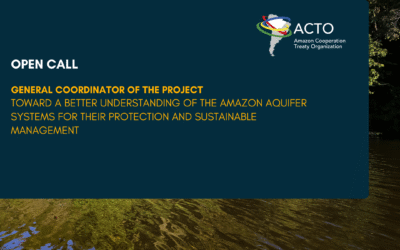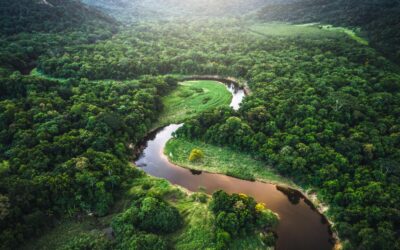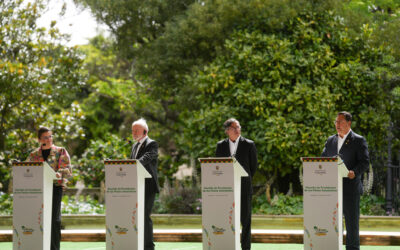Belém, August 7, 2024 – With the aim of promoting a sustainable and inclusive development model for the Amazon region, today marks the beginning of the “Second Regional Dialogue on Amazonian Bioeconomy and Inclusive Rural Transformation” in Belém, state of Pará, Brazil. This event is jointly organized by the Food and Agriculture Organization of the United Nations (FAO) and the Amazon Cooperation Treaty Organization (ACTO).
The dialogue, which will continue until August 8, comes a year after the signing of the Belém Declaration (2023) and seeks to promote inclusive rural transformation in the Amazon region, in line with the Sustainable Development Goals (SDGs) of the 2030 Agenda. During the opening, the importance of bioeconomy as a fundamental strategy to eradicate poverty (SDG 1), achieve food security (SDG 2), and reduce inequalities (SDG 10) was highlighted.
This dialogue not only aims to consolidate cooperation among the Amazonian countries but also to generate technical inputs that contribute to the development of an Amazonian Strategy for Food and Nutritional Security and Sovereignty, in accordance with resolution RES/XIV MRE-ACTO/11, and to promote the development of a regional cooperation framework in key areas such as the certification and valorization of Amazonian products, in line with resolution RES/XIV MRE-ACTO/23.
During the event, emblematic cases will be presented and discussions will focus on how to leverage Amazonian biodiversity to combat poverty, hunger, and social inequalities. Progress will also be made in formulating the Amazonian Strategy for Food and Nutritional Security and Sovereignty, commissioned by the ACTO member countries.
Edmilson Rodrigues, Mayor of Belém, highlighted the importance of this meeting, emphasizing that bioeconomy is a fundamental strategy for the sustainable development of the Amazon. “It is unacceptable that a region so rich in natural resources as ours continues to face problems of hunger and poverty. This dialogue is a crucial step to define strategies that sustainably leverage our biodiversity,” stated Rodrigues.
Luiz Beduschi, Senior Policy Officer at FAO, expressed, “With the Hand-in-Hand Initiative, we are dedicated to identifying and formulating investment plans in agri-food systems that create greater opportunities for the Amazon region. We are looking forward to beginning the formulation of the Amazonian Strategy for Food and Nutritional Security and Sovereignty, commissioned by the ACTO Member Countries in the Brasília Declaration.”
Vanessa Gazziotin, Executive Director of ACTO, emphasized the relevance of international cooperation in these efforts and stressed the importance of turning knowledge into concrete actions: “Our main goal is to transform all that we know into practical, objective, and accessible issues to overcome the challenges of the Amazon and build a healthier and hunger-free society.
The city of Belém, which is preparing to host COP 30 in 2025, becomes the ideal setting for these strategic debates that seek to position bioeconomy as a key vector for the sustainable development of the Amazon.











